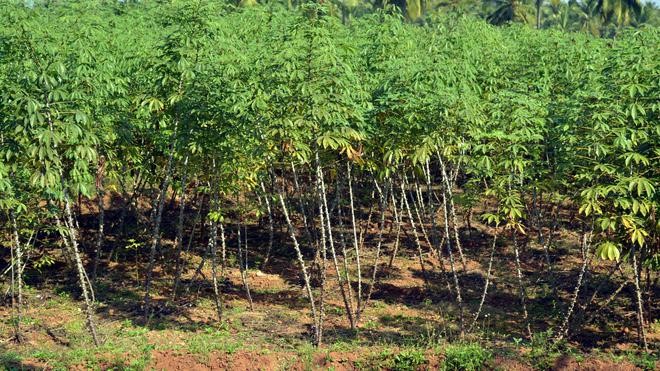
Tapioca plant (cassava)

08.01.2024
Tapioca plant (cassava) , Daily Current Affairs , RACE IAS : Best IAS Coaching in Lucknow
|
For Prelims:About Tapioca plant,Climatic conditions,ICAR-Central Tuber Crops Research Institute |
Why in the news?
The ICAR-Central Tuber Crops Research Institute (CTCRI) here has issued an advisory on feeding animals with parts of cassava (tapioca) in view of the incident in Idukki where 13 cows died in a farm recently.
About Tapioca plant:
- It is a major horticulture crop cultivated in nearly 3 lakh hectares in Tamil Nadu, producing 60 lakh tonnes of the crop.
- It is cultivated throughout the tropical world for its tuberous roots, from which cassava flour, breads, tapioca, a laundry starch, and an alcoholic beverage are derived.
Climatic conditions required
- Soil: Any well-drained soil, preferably red lateritic loamy soil.
- It thrives best in a tropical, warm, humid climate
- Rainfall:Well-distributed rainfall of over 100 cm per annum.
- This crop can be cultivated upto an elevation of 1000 m.
- All parts of cassava/tapioca – leaves, stem, tuber and rind – contain the compounds called cyanogenic glucosides (CNGs), that is, linamarin and lotaustralin which are hydrolysed by endogenous enzyme linamarase to acetone cyanohydrin which may break down spontaneously liberating free hydrogen cyanide.
- Both acetone cyanohydrin and free cyanide are toxic.
- Its leaves contain about 10 times higher amount of CNGs than roots.
- The CNG content of cassava leaves decreases with the increase in the age of the leaves.
- The rind contains 10-30 times higher cyanoglucoside content than the edible parts.
- Feeding crushed peels or leaves immediately after crushing or without proper drying poses a high risk of cyanide poisoning in animals.
ICAR-Central Tuber Crops Research Institute (CTCRI)
- It is a constituent institute under the Indian Council of Agricultural Research (ICAR) is the only research organization in the world dedicated solely to the research on tropical tuber crops.
- The Institute established in 1963 with its headquarters at Thiruvananthapuram, Kerala has with an area of 48.19 hectares.
- The headquarters of ICAR - CTCRI is located at Sreekaryam at a distance 12 km away from Thiruvananthapuram International Airport and 10 km from Thiruvananthapuram Central railway station as well as Central Bus Station Thiruvananthapuram.
- The Institute has a regional centre at Bhubaneswar, Orissa established in 1976 .
Source: The Hindu